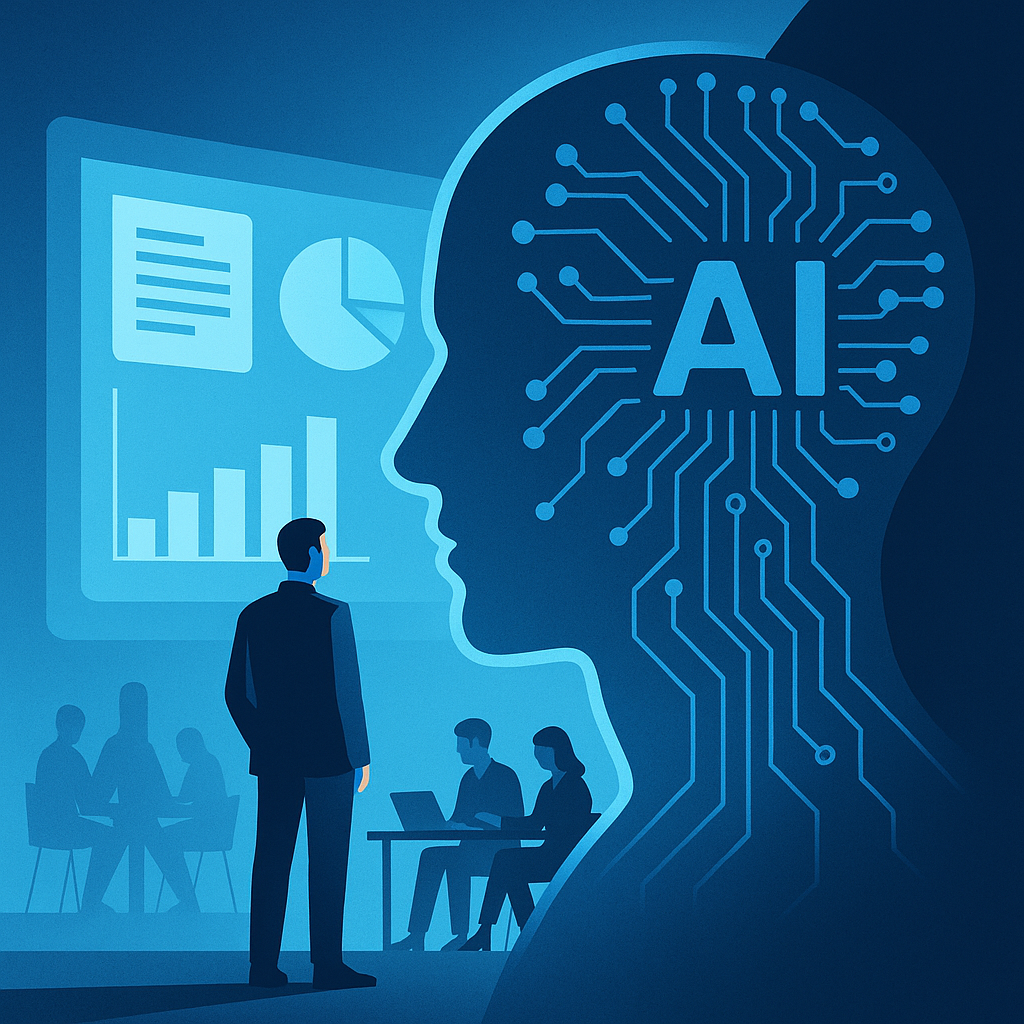The AI Inflection Point: What It Means for the Future of Work in Marketing

By Bronwyn Heys, CEO, Australian Marketing Institute
The headlines are impossible to ignore. “The job apocalypse is already here,” reads a recent article in the Australian Financial Review, echoing a New York Times piece by Kevin Roose. These stories paint a picture of a professional landscape being rapidly reshaped by artificial intelligence. While the fears are real, so too are the opportunities. As AI continues to infiltrate white-collar professions, marketing stands at the centre of a revolution that is both technological and deeply human.
As the CEO of the Australian Marketing Institute, I’ve long championed the idea that marketing is more than just campaigns; it’s about understanding people, shaping narratives, and building trust. But today, we must also acknowledge that marketing is being redefined by the tools we use—and the speed at which they are evolving.
Entry-Level Jobs Under Pressure
The AFR article highlights a growing trend: companies replacing junior employees—marketing analysts, finance assistants, research support roles—with AI systems that promise higher efficiency at a fraction of the cost. Klarna, the Swedish fintech, made headlines recently for replacing 75% of its customer service team with AI. Tech firms have stopped hiring junior engineers because the tasks once performed by early-career professionals are now executed by bots.
This shift isn’t theoretical. It’s here.
According to research from the Brookings Institution, marketing is one of the professions most vulnerable to automation. In the report “Generative AI and the Future of Work,” Molly Kinder explains:
“These tools are so good, you no longer need marketing analysts, finance analysts or research assistants.”
It’s a wake-up call for leaders across all sectors but particularly in marketing, where early-career roles form the bedrock of team development and long-term talent pipelines.
What Happens When the Base Disappears?
Traditional marketing teams are shaped like pyramids: a broad base of junior staff supporting mid-level managers and senior strategists. This structure has allowed professionals to grow through hands-on learning, mentorship, and gradual exposure to complexity.
But what happens when AI erases that base?
If we remove the junior tier, how do we train the next generation of marketers? How do we preserve institutional memory, brand sensibility, and the intuitive skills that come from years of real-world problem-solving?
There are two paths forward. The first is contraction shrinking marketing departments and leaving creative and strategic work to a select few humans supported by machines. The second is transformation redesigning roles and workflows to embrace AI as a co-pilot rather than a replacement.
The Future Marketing Team
The answer lies in a new kind of marketing organisation. One that is:
- AI-native – structured to integrate automation, not resist it.
- Human-led – elevating creativity, ethics, empathy, and judgement.
- Learning-obsessed – driven by continuous upskilling across all levels.
- Ethically aware – guided by values, not just velocity.
Emerging roles already reflect this shift:
- AI Prompt Engineers
- Creative Technologists
- Automation Workflow Managers
- Brand Guardians (ensuring consistency across AI-generated content)
- Ethical AI Reviewers
It’s no longer enough to teach marketers how to use PowerPoint or brief an agency. We must teach them how to brief a generative AI system, how to evaluate outputs for bias, how to design content with cultural intelligence, and how to apply human insight where AI lacks depth.
Ethical Leadership: The Responsibility of CMOs and CEOs
Kinder’s second Brookings paper, “The Moral Dimension of AI for Work and Workers,” hits a powerful nerve:
“The integration of AI in the workplace is not only a matter of efficiency. It is a moral question about what kind of future we are building.”
The ethical burden of this transition cannot fall solely on policymakers or technologists. It belongs just as much to marketing leaders. We shape public opinion. We influence customer behaviour. We build culture.
And that means we have a duty to:
- Ensure inclusive hiring and avoid over-reliance on AI at the expense of diversity.
- Train junior staff in AI fluency so they’re not left behind.
- Set internal standards for transparency and accountability in AI usage.
What We’re Doing at AMI
At the Australian Marketing Institute, we’ve recognised this inflection point and we’re acting on it.
Our updated Marketing Competency Framework now includes:
- AI understanding
- Data analytics
- Ethical marketing practices
- Strategy
We’re also offering programs that teach marketers how to collaborate and work with AI tools across the funnel from content ideation to performance tracking. And we’re encouraging member organisations to think proactively about team design, workforce planning, and career mobility in the AI era.
In Closing: Relevance is a Choice
This moment in time is not an apocalypse, it’s a redesign.
Yes, AI will reshape the workforce. But in marketing, it offers the potential to remove friction, increase personalisation, and return more time to the truly human aspects of our craft: insight, intuition, emotion, and storytelling.
Marketers who resist AI will fall behind. But marketers who understand how to use it with discernment, creativity, and care will lead.
The future of work in marketing is not about man versus machine. It’s about designing systems where both excel.
Let’s be bold. Let’s be brave. Let’s be better.
And most of all let’s be ready.





